News & Updates
From our desk: Holiday reading for bibliophiles - Part II
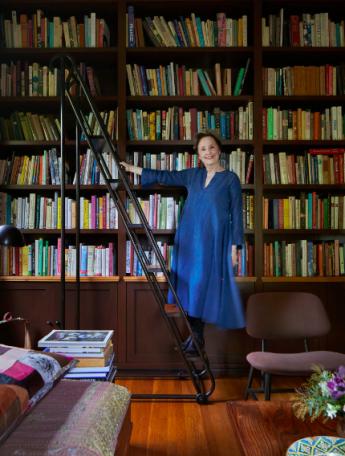
Bibliophilia in Spain
Spanish writer and philologist Irene Vallejo recently commented in a UK Guardian interview: "Alexander the Great’s library was the first step towards the internet".
Her recent publication "Papyrus" (Original title: "El Infinito en un junco: La invencion de los libros del mundo antiguo") was an immediate success upon its publication and has been translated into various languages.
She comments on the question in the Guardian: The original title for Papyrus in Spanish was El infinito en un junco (Infinity in a Reed). Can you explain?
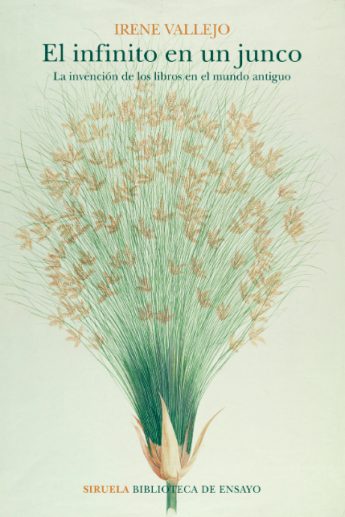
It’s a metaphor for my description of what is wonderful about books. The idea that infinite feelings, experiences, fears and emotions can be [contained] in something so small and common. I’m thinking of the first books in history, which were papyrus scrolls [made from a type of reed]. It’s also a tribute to Pascal [Blaise Pascal, the French philosopher], who described human beings as reeds. He said we are fragile like reeds, but we have the power of learning and understanding.
"The book is one of mankind's most beautiful inventions." writes Swiss publisher Diogenes. "Books allow words to travel through time and space and ensure that ideas and stories last for generations. Irene Vallejo takes us on an adventurous journey through the fascinating history of the book, from the beginnings of the Library of Alexandria to the fall of the Roman Empire. Along the way we meet rebellious nuns, shrewd booksellers, tireless storytellers and other people dedicated to the world of books."
Irene Vallejo
Original title: El Infinito en un junco: La invencion de los libros del mundo antiguo. (2019)
Now translated into English, German and French
Bibliophilia in Sweden
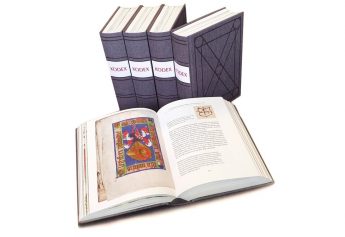
A wonderful book has been published in 2022 in Sweden:
Codex: The Book in Medieval Sweden
Original title: Kodex. Boken i medeltidens Sverige
Jonas Nordin from the Department of Book History at Lund University, is the editor of this newly published handbook on medieval written culture, based on the latest knowledge and brings together some twenty of Sweden's leading medieval scholars.
The publication deals with the book as an object and as a cultural product in a time when Sweden was incorporated into the European educational sphere. The twenty specially written texts range from the production and design of books, to the development of writing systems and illustration, to the use, exchange and collection of books in both manuscript and print. The book was produced by the Department of Book History, Lund University. The authors are leading medievalists from a variety of fields.
The book is published in the series Mediehistoriskt arkiv. This Media History Archive publishes researchers from all over Sweden and houses anthologies, monographs - including dissertations - and source collections.
To download or purchase a copy, please follow this link.
Bibliophilia in Germany
Only a few weeks ago, in December 2022, Prof. Dr Füssel of the Book History Studies at the University of Mainz, presented his new publication "Von Gutenberg zum World Wide Web".

The publication reflects on the significance and impact of Johannes Gutenberg's inventions (1400-1468) and shows their lively further development up to the present day.
Gutenberg researcher Stephan Füssel (Mainz) places Johannes Gutenberg in the history of world media and portrays him as the father of mass communication in modern times; publicists Jürgen Wilke and Harald Böning (Mainz / Bremen) address the creative interrelationship between books and newspapers and explain the popular print media of popular enlightenment, respectively, while Gerhard Lauer (Mainz) discusses the future of the printed book in the digital society. The US media researcher Jeff Jarvis (New York) outlines the opportunities and risks of the World Wide Web against the backdrop of the Gutenberg era and does not forget that it has only been influencing our lives for 25 years and that, compared to the Gutenberg era, we are thus only at the beginning of the development, more or less in the year 1480 ...
Von Gutenberg zum World Wide Web: Aspekte der Wirkungsgeschichte von Gutenbergs Erfindung - zur Neukonzeption des Mainzer Gutenberg-Museums
by Stephan Füssel
13 December 2022, Harrassowitz Verlag, Wiesbaden
ISBN 978-3-447-11932-0
Link to buy a copy, click HERE
Bibliophilia in Italy
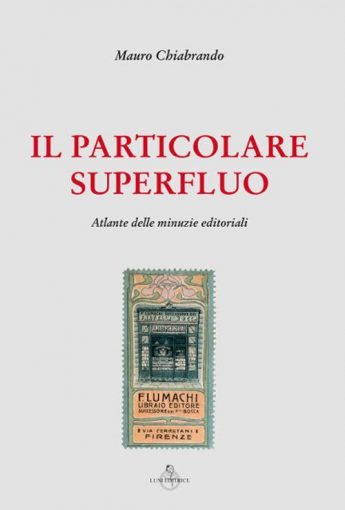
A recommendation we received from Italy: Il particolare superfluo. Atlante delle minuzie editoriali
English translation: The superfluous detail. Atlas of editorial minutiae
For the first time Ephemeral aspects of the book chain are collected in a volume - selected, presented and commented on as a historical sampler in the form of an atlas of images. Catalogues, wrappers, labels, stamps, small flying advertisements, bookmarks, coupons, bibliographical cards, review gift cards, publisher's messages, misprints, vouchers, cards, competitions, markers, memos, quality control coupons, prices and their variations, circulating library or combatant bookmarks, gift labels, prize certificates and institutional ex-libris become the pieces of an evocative mosaic of "publishing minutiae".
An extraordinary publication and treasure for ephemera dealers and collectors.
Il particolare superfluo. Atlante delle minuzie editoriali
by Mauro Chiabrando
Luni Editrice Publishers, Italy
ISBN: 9788879846233
Bibliophilia in the US
"If you dream of building a library in a private house, buy this unusual book... For the bibliophile there is on practically every page something to learn, something to delight and something to amuse." wrote Charles Spicer, The Book Collector (Winter 2021 Issue)
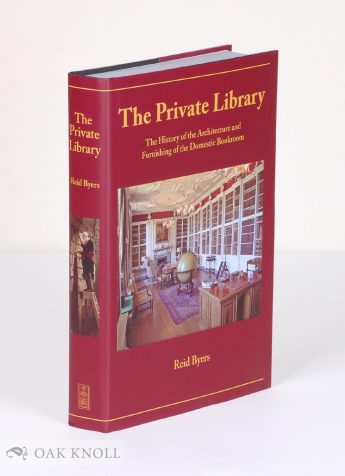
Oak Knoll's "The Private Library: The History of the Architecture and Furnishing of the Domestic Bookroom" is a treasure for anyone dreaming of a large private library and a wonderful resource for all those who have reached that level of "bibliomania".
A wonderful interview and review appeared in the New York Times on publication:
"How Many Books Does It Take to Make a Place Feel Like Home?"
The Private Library is the domestic bookroom: that quiet, book-wrapt space that guarantees its owner that there is at least one place in the world where it is possible to be happy. The story of its architecture extends back almost to the beginning of history and forward toward a future that is in equal parts amazing and alarming.
In this book, Mr. Byers examines with a sardonic eye the historical influences that have shaped the architecture of the private library, and the furnishings, amenities, and delightful anachronisms that make the mortal room into what Borges so famously called Paradise.
Reid Byers is a longtime celebrant of the private library. He has been a Presbyterian minister, a C language programmer, and a Master IT Architect with IBM. The writing of this book, a procès de longue durée, has itself extended through part of the history it describes and has been equally divided between Princeton, New Jersey, and the Blue Mountains of Maine.
The Private Library: The History of the Architecture and Furnishing of the Domestic Bookroom by Reid Byers
First edition, third printing with corrections
New Castle, Delaware: Oak Knoll Press, 2021
ISBN: 9781584563884
Image above: Alice Waters, the chef and food activist, estimated that two-thirds of the 1,800 or so books in her Berkeley, Calif., home have something to do with food. “I have my own strange organization,” she said, “but I pretty much know where everything is.”
Image credits: Matthew Millman for The New York Times, link to original article
Article by Angelika Elstner
